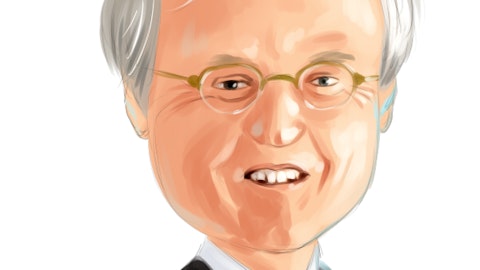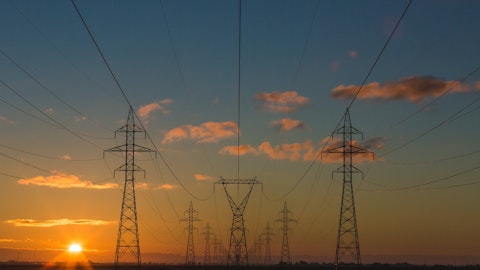Marty Lyons: Yes, Jeremy, I mean, I think as you know, I mean, our past practice really has not been to sort of speculate where we’ll be within that range. I think I’ll point to where we have achieved results, obviously. Historically, we’ve been to 7.5% CAGR since about 2013. So I’ll let that sort of speak to itself. Obviously, we did raise the rate base growth from 7% to 8%. And I mean again, as you think about that range, over time, it drives about a $0.45 range, that 6% to 8% over that kind of five-year period. And obviously, there are some drivers, as you pointed out, in terms of just outcomes in the multiyear rate plan, earned versus allowed ROEs, financing assumptions, et cetera. But again, let sort of the past speak for itself at the moment.
Michael Moehn: Yes. And Jeremy, I’d just reiterate what I said. We feel very confident in our ability to be able to execute that $19.7 billion CapEx plan, which gives us confidence in our ability to execute that 8% rate base growth plan. And that underscores our confidence in the 6% to 8% EPS CAGR that we’ve outlined today.
Jeremy Tonet: Got it. That’s helpful. I’ll leave it there. And Andrew, really great to hear you on the call.
Andrew Kirk: Thanks, Jeremy. Appreciate it. Glad to hear you, too.
Operator: Our next question comes from Julien Dumoulin-Smith with Bank of America. Please proceed with your question.
Julien Dumoulin-Smith: Hey, good morning, team. Thanks for the time, appreciate the comments thus far. Maybe to follow up on Nick’s question earlier, just with respect to Illinois and prospects for settling here. Any further elaborations around the new compact there? Just as you step into this, I just want to understand. Does this need to be sort of fully litigated and fully fleshed out to establish more of a record, given the context of some shift in the compact here? And again, that’s a question specifically directed at both the electric and the gas.
Marty Lyons: Yes. Julien, this is Marty. Yes, I think your intuition is probably right there, especially as it relates to the multiyear rate plan. I think it’s hard to speculate. I mean, if ever we have the opportunity to really enter into a constructive settlement with stakeholders, we’re certainly going to be interested in having that dialogue with stakeholders. I think it’s just very early in this multiyear rate plan filing. Obviously, we haven’t seen any staff or intervenor direct testimony. We won’t see that until May. And really premature to know whether it’s something that could be constructively settled or not. I will note that in Illinois, there hasn’t been that history of overall global settlements that we’ve had in Missouri. But we’ll certainly be looking after we get testimony to work with stakeholders to resolve differences, narrow the issues. And if we can, settle and that would hold true for the gas case as well.
Julien Dumoulin-Smith: Right. It holds through as and you probably want to work through a fully litigated case here.
Marty Lyons: No. I guess what I was saying there is we’re always going to be wanting to work with stakeholders. Once we see the differences to narrow those differences, certainly correct any errors and really to narrow the issues. And if we can reach a global settlement and put that before the commission, we’ll seek to do that. I was just saying with respect to the electric distribution part of the business, given the newness of this framework and the fact that we haven’t seen any testimony really premature to say whether that’s something that has a high degree of probability.




